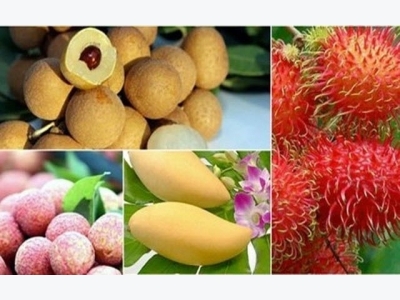Door opened for Vietnams vegetable and fruit exports to UAE

The door is being opened for Vietnam's fruit and vegetable exports to the United Arab Emirates (UAE) after the country banned import of certain fruits and vegetables from five countries in the Middle East, announced the Ministry of Industry and Trade (MOIT) on May 8.
Accordingly, imports from Egypt, Oman, Jordan, Lebanon and Yemen would be stopped as of May 15, said UAE’s Ministry of Climate Change and Environment. The list includes all varieties of pepper from Egypt; peppers, cabbage, cauliflower, lettuce, squash, beans and aubergine from Jordan; apples from Lebanon; melons, carrots and watercress from Oman; and all types of fruit from Yemen.
The ban means higher prices for these products in UAE for a short-term due to the shortage of supply for upcoming Ramadan – the month of fasting, which will be observed at the end of May, the MOIT analysed.
At a time when the UAE Government is tightening its management on imported vegetables and fruits, the MOIT warned Vietnamese exporters to comply with the food safety standards of UAE, particularly regarding pesticide residue.
Due to its unfavourable weather condition for agricultural production, UAE depends on imported goods to a large extent in order to meet domestic demand. The country’s import volume of fruits and vegetables touched around US$3.2 billion, US$2.6 billion and US$2.5 billion in 2014, 2015 and 2016, respectively.
Meanwhile, statistics from the General Department of Vietnam Customs has shown that Vietnam’s export of these products to UAE in the same reviewed period stayed at only US$14.2 million, US$16.2 million and US$22.8 million, respectively.
Thanks to a series of activities held by the Vietnamese Embassy in UAE and businesses from the two countries to promote Vietnamese agricultural products, certain made-in-Vietnam fruits and vegetables — such as bananas, dragon fruits, rambutans, longans, litchis, mangosteen, mango, and guava — have found a place in a number of UAE’s supermarket systems and won the heart of customers.
Related news
 Credit package for hi-tech agriculture hoped to become fruitful
Credit package for hi-tech agriculture hoped to become fruitful The recent credit package worth 100 trillion VND (nearly 4.4 billion USD) for hi-tech agriculture is expected to give a breath of fresh air
 IFC assists Vietnam with sustainable agricultural production
IFC assists Vietnam with sustainable agricultural production Patented seed sales account for about 49 percent of its 2016 consolidated revenues, a figure expected to increase to 82 percent by 2020.
 Hà Nội hi-tech farm expansion remains slow
Hà Nội hi-tech farm expansion remains slow The outdated production methods are due to slow application of modern technologies, and it has led to low economic values.